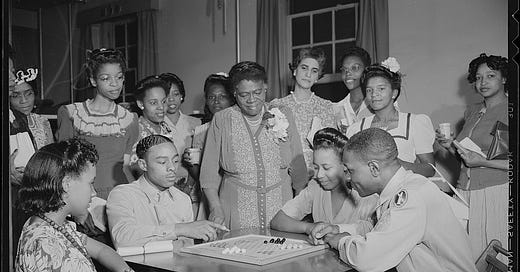Follow, Watch, Listen, Read
Dear History Cranks and Fiends,
Thank you for helping me celebrate the paperback launch of You Never Forget Your First this month, and for supporting the scholars I featured. And thank you to Jessie S…
Keep reading with a 7-day free trial
Subscribe to Study Marry Kill to keep reading this post and get 7 days of free access to the full post archives.



